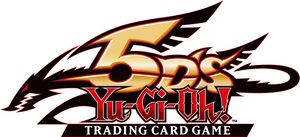Konami v. Upper Deck
Konami v. Upper Deck was a lawsuit which led to the dissolution of the partnership between Konami and Upper Deck Company in regards to the management of the Yu-Gi-Oh! Trading Card Game.
On October 8, 2008, Konami filed a complaint in the United States District Court for Central California charging Vintage Sports Cards with distributing re-packaged Yu-Gi-Oh! Trading Cards packages containing counterfeit rare cards.[1][2] Konami was granted an injunction against Vintage, but during the discovery process Vintage supplied evidence to Konami alleging that Upper Deck Company, LLC (dba Upper Deck Entertainment) was the source of the cards. Konami subpoenaed records from Upper Deck, but Upper Deck refused to comply with the subpoena, raising a legal objection.[3]
On December 10, Upper Deck filed suit in the District of Nevada alleging Konami had breached its agreements, committed fraud, and slandered Upper Deck.[3]
On December 11, Konami Digital Entertainment, Konami's American branch, announced that they would be taking control of the TCG[4] after Upper Deck had stated that the allegations were false, and had threatened legal action, should Konami continue to broadcast this information. This was followed by Upper Deck filing suit in Amsterdam on December 16,[3] and an injunction was scheduled for a hearing in the Netherlands between Upper Deck and Konami on December 22.[5][6]
On December 24, a Dutch court decided in favor of Upper Deck Panoceanic BV and Upper Deck International BV, the licensed distributor and organizer of the TCG in Europe, Latin America, and Oceania, which temporarily overruled Konami's termination of the contract with Upper Deck in those locations.[7] Konami filed an amended complaint, adding Upper Deck as a co-defendant to the original suit against Vintage, alleging that Upper Deck was the source of said counterfeit cards.[8]
In mid-January 2009, Upper Deck announced that Konami had not sent Champion Packs to them for distribution to hobby stores[9] and Konami immediately responded with the statement that the lack of availability of Champion Packs to Upper Deck was because Konami had terminated the contract between the two companies and that Konami was the only authorized distributor in North America.[10] Upper Deck, in turn, continued to make plans for product support,[11] and in late January again denied the counterfeiting charge.[12]
Meanwhile, the U.S. District Court in California had also followed up with a ruling on the preliminary injunction in favor of Upper Deck Company, controller of the game in North America, which effectively temporarily stopped Konami's takeover of the worldwide version of the game.[13][14] Konami filed a renewed motion in the Califoria courts against Upper Deck and Vintage at this time, citing additional evidence.[15]
On February 26, the California court reversed its previous ruling and granted Konami a preliminary injunction against Upper Deck, ordering Upper Deck Company to stop using Konami's trademark, and to disassociate itself with the Yu-Gi-Oh! TCG,[16][17] which put Konami in charge of the TCG in North America. Upper Deck on the same day filed a trademark infringement suit against Konami in U.S. District Court in Nevada, claiming that the Eye of Anubis hologram mark on the lower right corner of Yu-Gi-Oh! cards serves as a trademark for Upper Deck.[18][19]
In early March, Upper Deck filed a counterclaim suit in the Central District of California, listing a number of charges including breach of contract, fraud, slander, and civil conspiracy.[3][20]
On April 15, the Amsterdam High Court of Appeals overturned the injunction favoring Upper Deck International over Konami, and upheld the termination of Konami's relationship with Upper Deck in Europe and the rest of the world outside Asia and North America.[21][22] This court ruling, along with the earlier California court ruling, gave Konami its current worldwide control of the Yu-Gi-Oh! card game.
References[edit]
- ↑ icv2.com Counterfeit 'Yu-Gi-Oh!' Rares
- ↑ iptrademarkattorney.com Copyright and Trademark Litigation Filed By Attorneys For Konami Over Sales Of Yu-Gi-Oh! Trading Cards
- ↑ a b c d iptrademarkattorney.com Upper Deck Enjoined From Selling Yu-Gi-Oh! Cards; Prescient Threats Of “Mutual Assured Destruction” In Counterclaims
- ↑ yugioh-card.com Konami to take control of the Yu-Gi-Oh! Trading Card Game
- ↑ icv2.com Konami Takes over 'YGO TCG'
- ↑ icv2.com Upper Deck/Konami Feud Spreads to Europe
- ↑ icv2.com Dutch Court Sides With Upper Deck
- ↑ icv2.com Upper Deck Source of Counterfeit 'YGO' Cards?
- ↑ icv2.com No 'Yu-Gi-Oh! Champion Packs'
- ↑ icv2.com Konami Responds on 'YGO TCG'
- ↑ icv2.com Upper Deck Day
- ↑ icv2.com Upper Deck Denies 'YGO' Counterfeiting Charge
- ↑ icv2.com Upper Deck Gets Favorable U.S. Ruling
- ↑ iptrademarkattorney.com Konami Digital Entertainment, Inc., et al. - v - Vintage Sports Cards, Inc., et al.
- ↑ iptrademarkattorney.com Notice of Motion and Renewed Motion for Preliminary Injunction Against the Upper Deck Company; Memorandum of Points and Authorities in Support Thereof
- ↑ icv2.com Konami Gets Injunction
- ↑ iptrademarkattorney.com Order Granting Preliminary Injunction Against the Upper Deck Company
- ↑ vegastrademarkattorney.com Upper Deck Sues Former Partner Konami Over Hologram
- ↑ courthousenews.com The Upper Deck Company, a Nevada corporation, Plaintiff, v. Konami Marketing Inc., a California corporation; and Konami Digital Entertainment, Inc., an Illinois corporation, Defendants.
- ↑ iptrademarkattorney.com The Upper Deck Company, a California corporation, Counterclaimant, v. Konami Marketing, Inc., a California corporation, and Konami Digital Entertainment, Inc., an Illinois corporation; and DOES 1 through 10, Counterdefendants
- ↑ icv2.com Konami Wins Appeals Court Ruling
- ↑ upperdeck-international.com Upper Deck International strongly condemns any form of counterfeit
